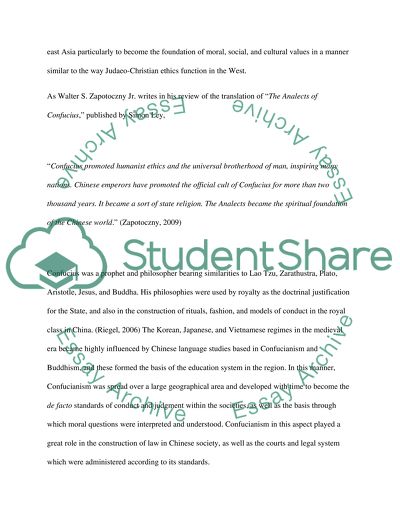Cite this document
(“Analects of Confucius by Simon Leys Book Report/Review”, n.d.)
Retrieved from https://studentshare.org/family-consumer-science/1415110-analects-of-confucius-by-simon-leys
Retrieved from https://studentshare.org/family-consumer-science/1415110-analects-of-confucius-by-simon-leys
(Analects of Confucius by Simon Leys Book Report/Review)
https://studentshare.org/family-consumer-science/1415110-analects-of-confucius-by-simon-leys.
https://studentshare.org/family-consumer-science/1415110-analects-of-confucius-by-simon-leys.
“Analects of Confucius by Simon Leys Book Report/Review”, n.d. https://studentshare.org/family-consumer-science/1415110-analects-of-confucius-by-simon-leys.


